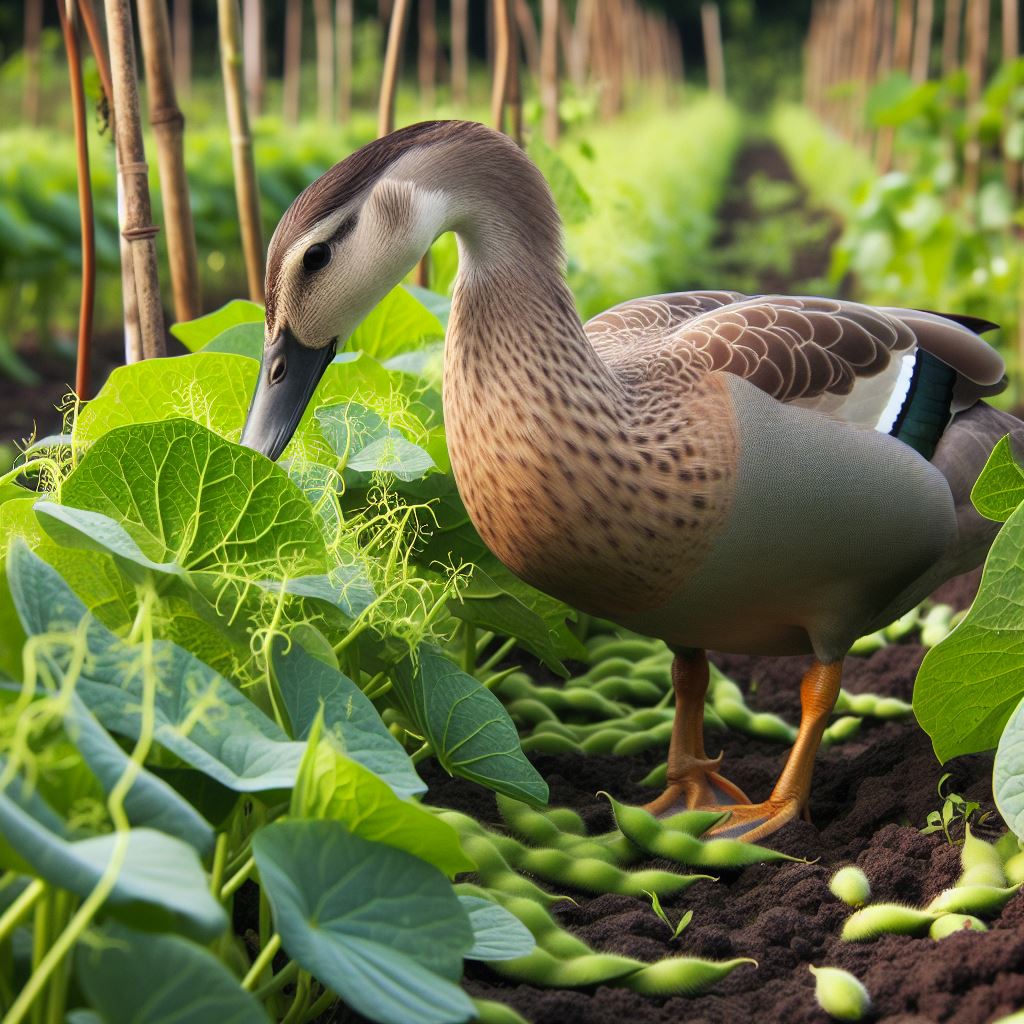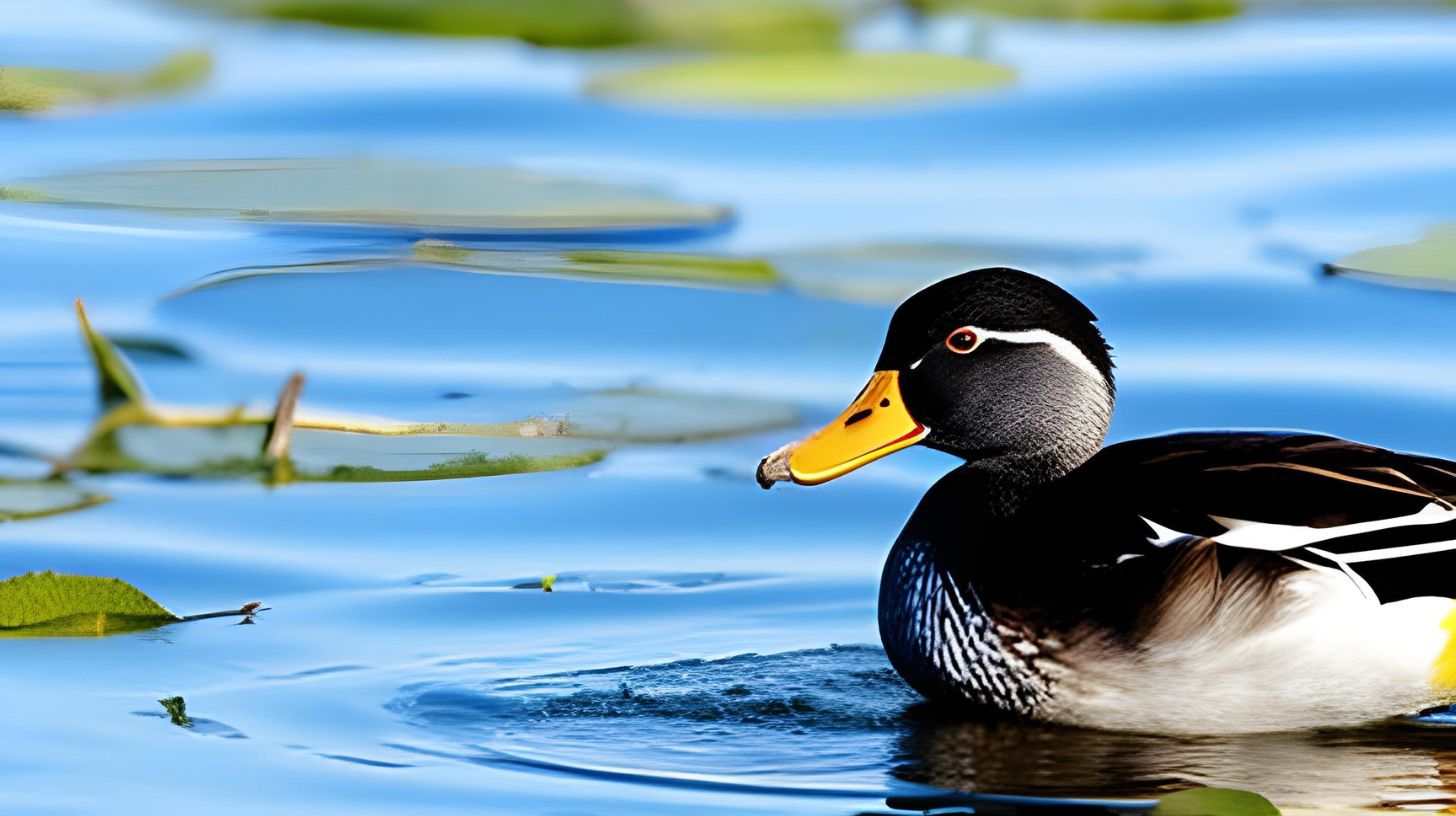Can Ducks Eat Mushrooms? A Guide for Duck Owners

Table of content:
As a responsible duck owner, you want to ensure that your feathered friends are eating a healthy and balanced diet. But when it comes to mushrooms, you may be wondering whether can ducks eat Mushrooms for their diet.
While some mushrooms are safe for ducks to consume, others can be toxic and even deadly. It’s crucial to understand which mushrooms are safe for ducks and which ones should be avoided to keep your ducks healthy and happy.
Key Takeaways
- Feeding mushrooms to ducks can be safe as long as you know which mushrooms are safe for them to consume.
- Toxic mushrooms can cause serious health problems or even death in ducks if ingested.
- Incorporating mushrooms into your duck’s diet should be done in moderation and under the guidance of a veterinarian.
The Safety and Health Aspects of Feeding Mushrooms to Ducks
If you are considering adding mushrooms to your duck’s diet, it is crucial to understand the safe and toxic varieties. While some mushrooms boast health benefits, others can be toxic and pose serious health risks to your feathered friends
The Risks of Toxic Mushrooms for Ducks
Several species of mushrooms are poisonous to ducks. Consuming toxic mushrooms can lead to severe health complications, including organ failure, seizures, and death. Common poisonous mushrooms that ducks should avoid include the Amanita genus, which includes the Death Cap mushroom, and the Gyromitra genus, including the False Morel mushroom.
Safe Mushrooms for Ducks
Fortunately, several varieties of mushrooms are safe for ducks to eat in moderation. These include button mushrooms, shiitake mushrooms, and oyster mushrooms. Mushrooms are a great source of vitamins and minerals, including potassium, selenium, and vitamin D, which can promote healthy bones and feathers in ducks.
How Much and How Often Should You Feed Your Duck Mushrooms?
Mushrooms should be incorporated into your duck’s diet in moderation. It is recommended that ducks consume a diet that is primarily composed of grains and greens. You may offer your duck a small portion of mushrooms once a week, and observe their behavior and health after eating them. If you notice any adverse reactions, discontinue feeding mushrooms and seek veterinary attention if necessary.
How to Prepare and Serve Mushrooms to Ducks
Before feeding your ducks mushrooms, it is essential to clean and cook them thoroughly. Rinse mushrooms under cold water to remove any dirt or debris. You can chop or slice mushrooms and offer them raw, or sauté them with a small amount of butter or oil for added flavor. However, avoid seasoning mushrooms with garlic or onion, both of which can be poisonous to ducks.
Incorporating Mushrooms into a Duck’s Diet
Now that you know which mushrooms are safe for ducks to eat, you may be wondering how to incorporate them into your duck’s diet. It’s important to remember that mushrooms should only be a small part of your duck’s overall meal plan.
A good rule of thumb is to offer your ducks a variety of foods, with mushrooms being just one of them. Aim to feed them a balanced diet that includes a mix of grains, fresh fruits and vegetables, and protein sources such as insects, fish or meat if desired. This will ensure your duck is getting all the nutrients it needs to maintain good health.
When adding mushrooms to your duck’s diet, start with a small amount and gradually increase the quantity over time. A recommended portion size is one or two small mushrooms per duck per day. Always monitor your duck’s behavior and health after introducing new foods to their diet.
Before feeding your ducks mushrooms, it’s best to cook them first. This will help break down the tough cell walls and make the mushrooms easier to digest. You can sauté the mushrooms in a small amount of oil or butter, or boil them lightly in water before serving.
Remember, not all mushrooms are safe for ducks to eat. Only feed your ducks mushrooms that you have positively identified as safe or purchased from a reputable source. If you’re unsure about a certain type of mushroom, it’s best to err on the side of caution and avoid feeding it to your ducks.
The Risks of Feeding Ducks Mushrooms
While some mushrooms may be safe for ducks to eat, there are significant risks associated with feeding them the wrong kind. For example, certain toxic mushrooms can cause liver failure, organ damage, or even death in ducks.
In addition, some ducks may have an allergic reaction or digestive issues when consuming mushrooms. Symptoms can include lethargy, vomiting, diarrhea, and difficulty breathing.
It is important to monitor your ducks closely if you decide to introduce mushrooms into their diet. Watch for any unusual behavior, and seek immediate veterinary care if you notice any of the symptoms mentioned above.
Identifying Safe Wild Mushrooms for Ducks
For those who want to include wild mushrooms in their duck’s diet, it’s important to know which types are safe for consumption. Here are some commonly found wild mushrooms that are generally considered safe for ducks:
While these mushrooms are generally safe, it’s still important to exercise caution when foraging. Ensure that you are identifying the correct species and avoid any mushrooms that you are unsure of. Additionally, it is important to take measures to avoid contamination from pesticides, pollutants, or other harmful substances.
Tips for Safe Foraging Practices for Ducks
If you plan on foraging for mushrooms for your ducks, keep these tips in mind:
- Forage in areas that are free from chemical pollutants and other toxic substances
- Avoid areas that have been sprayed with pesticides or other chemicals
- Consult with a professional or utilize a reputable field guide to ensure correct mushroom identification
- Only collect mushrooms that appear healthy and free from decay or damage
- Thoroughly wash and clean the mushrooms before feeding to your ducks
By practicing safe foraging techniques and being knowledgeable about the mushrooms you are gathering, you can safely incorporate wild mushrooms into your duck’s diet.
Conclusion
Feeding mushrooms to ducks can add variety to their diet and potentially provide health benefits. However, it’s essential to understand which mushrooms are safe for ducks to consume and which ones are toxic. Always err on the side of caution and consult with a veterinarian before introducing mushrooms to your duck’s diet. Keep a close eye on your duck’s behavior and health after feeding them mushrooms to monitor for any potential allergic reactions or digestive issues. Remember that while some mushrooms may be safe for your duck, others can be extremely harmful and even fatal. When foraging for wild mushrooms, make sure to identify safe types and practice safe foraging techniques.
Welcome. I’m Adreena Shanum, the proud owner of this website, and I am incredibly passionate about animals, especially poultry. I founded adreenapets.com as a labor of love, stemming from my desire to share my knowledge and experiences with poultry enthusiasts worldwide.




